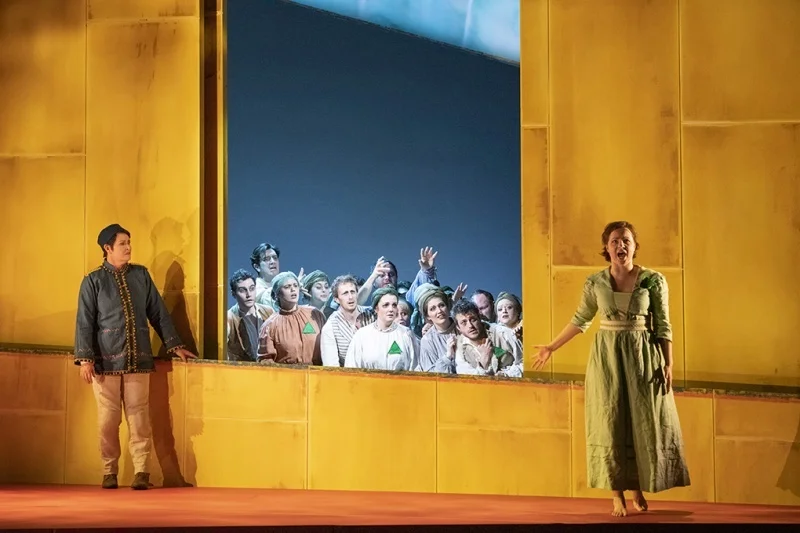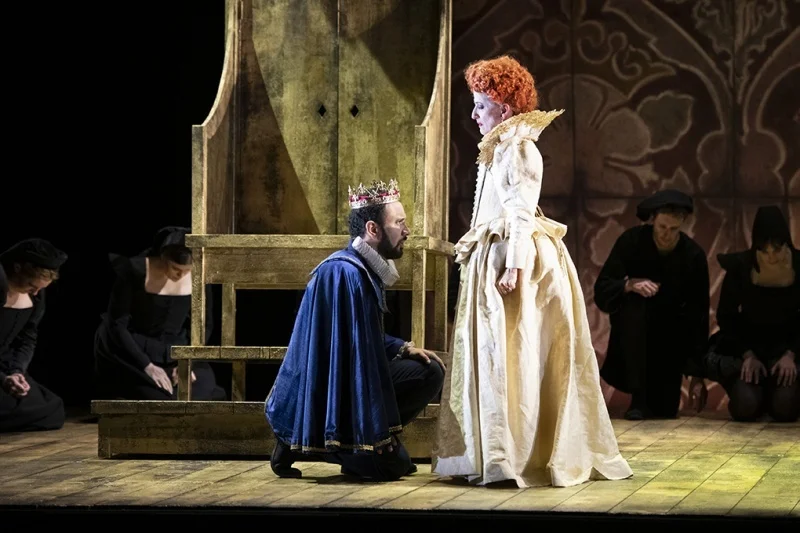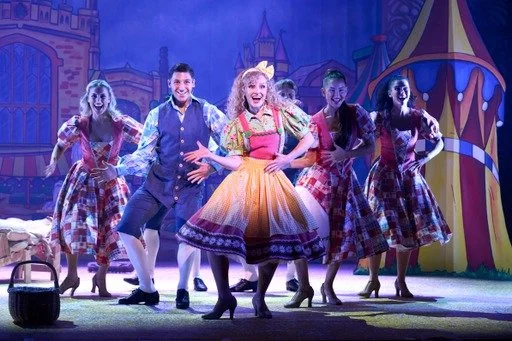IDOMENEO AT THE ARTS THEATRE
‘Idomeneo’ is full of magic and mystery, superstition and complication. Unlike the world’s most beloved opera by the same composer “The Marriage of Figaro” or the infamous darkness and damnation of his ‘Don Giovanni , it has no brio, little action (most of what happens goes on off-stage) and the high points are mostly reported to a static group who then discuss them (musically) and reveal – or more often conceal – their own feelings.
Yet even though the opera obeys the rules of classical theatre , bursts of real raw emotion erupt through the fabric of the piece and the entire work is suffused with Mozart’s sublime music .
Idomeneo is a sequel. The Trojan War is over and the damaged people of a 10- year long brutal conflict, are growing up with its effects. On the island of Crete the prince Idamante has not seen his absent father for a decade, missing presumed dead in the journey home. Ilia, the young Trojan princess he loves is still smarting from the ravages of defeat, her kin all slain or sold into slavery. And Elettra, possibly the most spiritually tortured of all of them, lives with hate in her heart, hardly surprising when you remember she was the daughter of Agamennon and her mother was murdered by her brother Orestes . She makes a pledge to steal Idamante from the woman he loves. The five of them live under the strain of a post-war world where the adults appear to have fled the scene.
Mozart gives them some wonderful music to express all this. Galina Averina sings Ilia with luminous simplicity, Idamante played in a ‘trouser role’ by Catherine Carbyn does look a bit incongruous to a modern eye at first, but her tonal range is wonderful and heartfelt. Outstanding describes the beautiful Elettra whose arias are simply dripping with wonderful expressive controlled lyricism.
Idomeneo the patriarch suddenly washes up on a beach in the middle of this growing up in Crete but instead of a happy reunion, he is tortured by a dark secret. He has made a pact with the God of the Sea to sacrifice the first person he sees, should he be saved from the waves, and of course the helpful stranger on the shore is his own son.
At first Idomeneo tries to avoid his fateful duty to sacrifice his only child and heir, by sending him and Elettra to Argos but by the third act they’re back and famine stalks the land. Eventually after a gruesome scene where Idomeneo wields a very realistically dangerous knife to do the terrible deed, love conquers all when Ilia offers herself as the victim and a Deus ex Machina actually intones from the wings in a deep baritone to tell the townspeople and the kings’ court that the threat is over and peace and the young couple must reign. Only Elettra is still furious and in a brilliant collaratura sequence, she reveals just how unhinged she really is and she is dragged offstage by a capable Arbace , well managed and powerfully sung by John-Colyn Gyeantey. Idomeneo – a completely convincing and wonderfully musical role from Christopher Turner, is happy to relinquish the crown and even happier ( as was the audience ) that he would not have to butcher his own son in full view of the townsfolk. This chorus was excellent, even though they had little direction for their disappointments and disatisfactions, and most of the time were positioned on the far side of a low wall which when it was to represent the sea, was clearly a good idea but began to become an impediment to knowing this spirited and bright group better.
Complaints aside “Masonry is never laid that way” muttered one architect at the walls of the town and the lighting came in for criticism when the shadows appeared too dominant for some and began to detract from the action, this was a memorable night at the opera. Mostly for the delightful -clearly hugely knowledgeable - Conductor Jonathan Peter Kenny and the sublime performances from the five principals. Even if some of the audience was still confused about who was who even at the end of the evening “It’s five characters in search of a plot” one puzzled audience member remarked – no one could argue that with this first try, the young Mozart was on his way to his unassailable position as one of the world’s greatest composers with his magnificent oeuvre ahead of him to culminate in The Magic Flute.’
A long journey from ‘Idomeneo’ but a wonderful one.
English Touring Opera’s Idomeneo is at Cambridge Arts Theatre until 6 April.
www.cambridgeartstheatre.com







